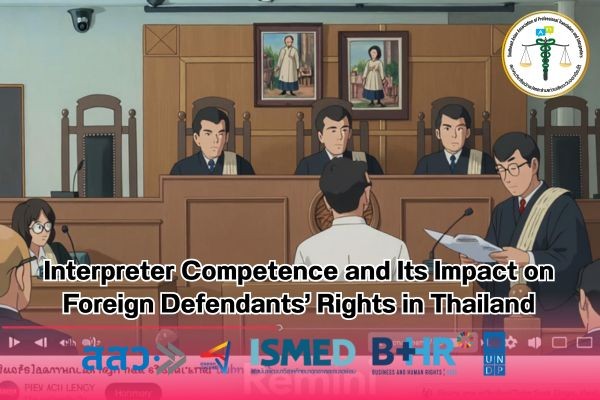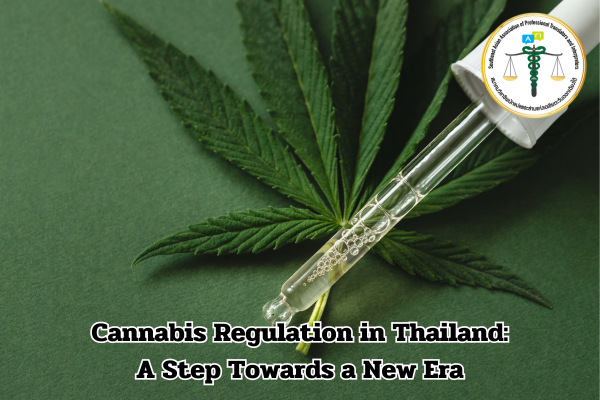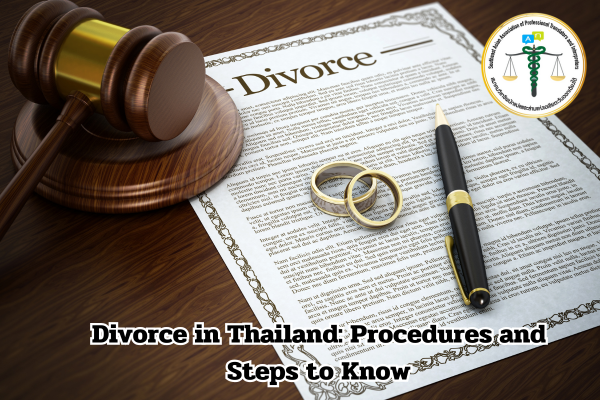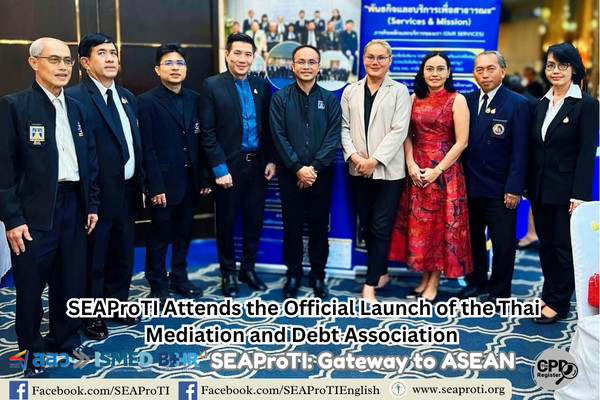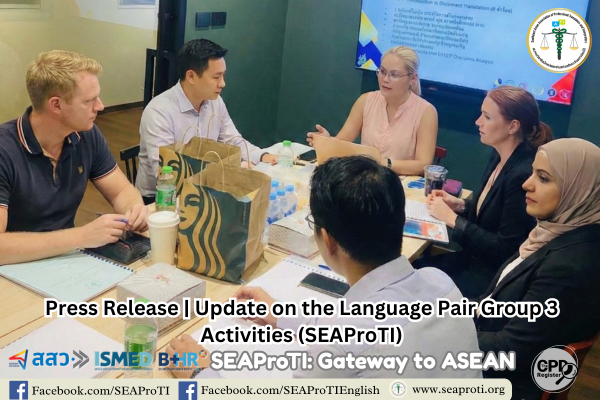Interpreter Competence and Its Impact on Foreign Defendants’ Rights in Thailand
Author: Wanitcha Sumanat, president of the Southeast Asian Association of Professional Translators and Interpreters
13 September 2025, Bangkok – Access to justice for defendants who do not speak Thai as their first language is a fundamental right enshrined in both the Thai Constitution and international instruments. However, in practice, many interpreters employed by Thai government agencies lack professional competence, resulting in violations of foreign defendants’ rights to be informed of charges and to receive a fair trial (ICCPR, 1966, art. 14).
Thai Constitution (Sections 29 and 40)
Section 29: Guarantees the right to due process and fair trial.
Section 40: Grants accused persons the right to legal counsel and to have an interpreter provided if they do not understand Thai.
Criminal Procedure Code (Sections 13, 172)
Section 13: Courts must provide an interpreter if a party does not understand Thai.
Section 172: Testimony must be given in court, and the court must ensure comprehension.
Analysis: While the law mandates the provision of interpreters, it does not specify professional standards or certification requirements, resulting in inconsistent practices across courts.
ICCPR, Article 14(3)(f)
Recognizes the right of any person charged with a criminal offense “to have the free assistance of an interpreter if he cannot understand or speak the language used in court.”
UN Principles (2012) and EU Directive 2010/64/EU
Emphasize the need for qualified, certified interpreters to ensure effective participation in proceedings and equality of arms.
Interpreter Competence and Impact
Poor legal terminology competence leads to inaccurate interpretation.
Lack of training standards causes inconsistency.
Impact: Defendants may plead guilty without full understanding, misunderstand verdicts, or fail to instruct their lawyers properly.
Comparison Table: Thai Legal Framework vs. ICCPR & EU Directive 2010/64/EU
| Key Issue | Thai Law | ICCPR / EU Directive | Gap & Observation |
|---|---|---|---|
| Right to an Interpreter | Constitution Section 40 and Criminal Procedure Code Section 13 require the court to provide an interpreter if a party does not understand Thai. | ICCPR Article 14(3)(f): Right to free interpreter assistance / EU Directive 2010/64/EU: Interpreter must be available at all stages (investigation to trial). | Thailand guarantees the right only in court but is unclear about pre-trial (investigation) stages. |
| Interpreter Qualifications | No clear requirements for qualifications, examination, or registration. | EU Directive: Interpreters must be qualified and competent. | Thailand does not yet have a National Register of Court Interpreters, leading to inconsistent quality. |
| Remuneration | Rates are set by government regulations and are generally low, making it difficult to attract qualified professionals. | International standards emphasize adequate remuneration to maintain quality. | Thailand should adjust rates to align with professional standards. |
| Quality Assurance | No mandatory system for audio recording or quality assessment of interpretation. | EU Directive requires monitoring and quality assurance mechanisms. | Thailand should implement monitoring systems to prevent rights violations. |
| Access to Translated Documents | No mandatory requirement to translate key documents (e.g., indictment, judgment) into the defendant’s language. | EU Directive: Requires translation of documents relating to charges and judgments. | This is a significant gap that prevents defendants from fully understanding case files. |
| Training & Ethics | No mandatory training curriculum or official code of ethics for court interpreters. | International standards require ongoing training and professional ethics codes. | Thailand should develop clear training programs and codes of ethics. |
Interpretation of Findings
The table shows that Thai law recognizes the basic right to an interpreter but lacks detailed provisions on interpreter qualifications, remuneration, and quality assurance. This creates systemic gaps that may result in rights violations for foreign defendants.
Conclusion
Raising the standard of court interpretation is essential to protecting the rights of foreign defendants. Professional training and certification will strengthen Thailand’s justice system and align it with international norms.
References
International Covenant on Civil and Political Rights, Dec. 16, 1966, 999 U.N.T.S. 171.
United Nations. (2012). UN Principles and Guidelines on Access to Legal Aid in Criminal Justice Systems. New York: UNODC.
European Union. (2010). Directive 2010/64/EU of the European Parliament and of the Council on the Right to Interpretation and Translation in Criminal Proceedings. Official Journal of the EU.
รัฐธรรมนูญแห่งราชอาณาจักรไทย พ.ศ. 2560.
ประมวลกฎหมายวิธีพิจารณาความอาญา.
About Certified Translators, Translation Certification Providers, and Certified Interpreters of SEAProTI
The Southeast Asian Association of Professional Translators and Interpreters (SEAProTI) has officially announced the criteria and qualifications for registration of Certified Translators, Translation Certification Providers, and Certified Interpreters under Sections 9 and 10 in the Royal Gazette, Office of the Cabinet Secretariat, Office of the Prime Minister, Kingdom of Thailand, dated 25 July 2024, Vol. 141, Part 66 Ng, p. 100. Certified Translators, Translation Certification Providers, and Certified Interpreters
The Office of the Council of State has proposed a Royal Decree allowing registered translators—including those certified by professional associations or language institutes with training and registration systems—to certify translations (Letter to SEAProTI dated April 28, 2025)
SEAProTI is the first professional association in Thailand and Southeast Asia to establish a comprehensive certification system for translators, translation certification providers, and interpreters.
Headquarters: Baan Ratchakru Building, Room 402, No. 33 Soi Phaholyothin 5, Phaholyothin Road, Phayathai District, Bangkok 10400, Thailand.
Email: hello@seaproti.com Tel: (+66) 2-114-3128 (Office hours: Monday–Friday, 09:00–17:00)
ล่ามในกระบวนการยุติธรรมไทย: ทักษะที่อ่อนด้อยและผลกระทบต่อสิทธิของผู้ต้องหาต่างชาติ
ผู้แต่ง วณิชชา สุมานัส นายกสมาคมวิชาชีพนักแปลและล่ามแห่งเอเชียตะวันออกเฉียงใต้
13 กันยายน 2568, กรุงเทพมหานคร – การเข้าถึงความยุติธรรมของผู้ต้องหาที่ไม่ใช้ภาษาไทยเป็นภาษาแม่เป็นสิทธิขั้นพื้นฐานที่ได้รับการรับรองทั้งในระดับรัฐธรรมนูญไทยและกติการะหว่างประเทศ อย่างไรก็ตาม ในทางปฏิบัติ ล่ามของหน่วยงานราชการไทยจำนวนมากขาดทักษะและมาตรฐานวิชาชีพ ส่งผลให้ผู้ต้องหาชาวต่างชาติได้รับผลกระทบทั้งในด้านสิทธิในการรับรู้ข้อกล่าวหาและสิทธิในการให้การอย่างเป็นธรรม (ICCPR, 1966, art. 14)
1. กรอบกฎหมายไทย
รัฐธรรมนูญแห่งราชอาณาจักรไทย พ.ศ. 2560 (มาตรา 29 และ 40)
- มาตรา 29 รับรองสิทธิในกระบวนการยุติธรรมที่เป็นธรรม (fair trial)
- มาตรา 40 กำหนดสิทธิของผู้ถูกกล่าวหาให้มีทนายความ และให้รัฐจัดหาล่ามกรณีที่ไม่เข้าใจภาษาไทย
ประมวลกฎหมายวิธีพิจารณาความอาญา (มาตรา 13, 172)
- มาตรา 13: หากคู่ความไม่เข้าใจภาษาไทย ศาลต้องจัดหาล่าม
- มาตรา 172: การเบิกความต้องทำต่อหน้าศาล และศาลมีหน้าที่รับรองว่าคู่ความเข้าใจ
วิเคราะห์: แม้กฎหมายกำหนดให้ศาลต้องจัดหาล่าม แต่ไม่ได้ระบุคุณสมบัติหรือมาตรฐานวิชาชีพของล่ามไว้อย่างชัดเจน ทำให้การตีความและการปฏิบัติแตกต่างกันไปในแต่ละศาล
2. มาตรฐานสากล
ICCPR, Article 14(3)(f)
รับรองสิทธิของผู้ต้องหาในการ “ได้รับความช่วยเหลือจากล่ามฟรี หากไม่สามารถเข้าใจหรือพูดภาษาที่ใช้ในศาล”
UN Principles and Guidelines on Access to Legal Aid (2012)
เน้นให้มีล่ามที่มีคุณสมบัติและความสามารถอย่างเพียงพอ (qualified interpreters)
EU Directive 2010/64/EU
กำหนดให้ประเทศสมาชิกจัดหาล่ามที่ผ่านการรับรอง (certified) และให้การล่ามมีคุณภาพเพียงพอสำหรับการป้องกันสิทธิของจำเลย
3. ปัญหาคุณภาพล่ามและผลกระทบ
ทักษะภาษาและศัพท์กฎหมายต่ำ ทำให้การแปลผิดพลาดหรือขาดความครบถ้วน
การไม่มีมาตรฐานการอบรม ทำให้คุณภาพล่ามแตกต่างกันมาก
ผลกระทบ: ผู้ต้องหาอาจยอมรับสารภาพโดยไม่เข้าใจสิทธิ, ไม่เข้าใจคำพิพากษา, หรือไม่สามารถให้คำสั่งทนายความได้
ตารางเปรียบเทียบกรอบกฎหมายไทยกับมาตรฐานสากล
| ประเด็นสำคัญ | กฎหมายไทย | ICCPR/EU Directive | ช่องว่างและข้อสังเกต |
|---|---|---|---|
| สิทธิในการมีล่าม | รัฐธรรมนูญ ม.40 และ ป.วิ.อาญา ม.13 บัญญัติให้ศาลจัดหาล่ามหากคู่ความไม่เข้าใจภาษาไทย | ICCPR ม.14(3)(f): สิทธิได้รับล่ามฟรี / EU Directive 2010/64/EU: ต้องมีล่ามในทุกขั้นตอน (สอบสวน-ศาล) | ไทยรับรองสิทธิเฉพาะในศาล แต่ไม่ชัดเจนในชั้นสอบสวน (pre-trial) |
| คุณสมบัติล่าม | ไม่มีข้อกำหนดชัดเจนเรื่องคุณวุฒิ การสอบ หรือการขึ้นทะเบียน | EU Directive: ต้องเป็นล่ามที่มีคุณสมบัติและความสามารถเพียงพอ (qualified interpreters) | ไทยยังไม่มี National Register of Court Interpreters ทำให้คุณภาพไม่สม่ำเสมอ |
| ค่าตอบแทน | อัตราค่าตอบแทนกำหนดโดยระเบียบราชการ มักต่ำ ทำให้ดึงดูดบุคลากรคุณภาพยาก | หลักสากลเน้นค่าตอบแทนที่เหมาะสมเพื่อคงคุณภาพ | ไทยควรปรับอัตราให้สอดคล้องมาตรฐานวิชาชีพ |
| การตรวจสอบคุณภาพ | ไม่มีระบบบังคับบันทึกเสียงหรือประเมินคุณภาพการล่าม | EU Directive กำหนดให้มีการตรวจสอบและประกันคุณภาพการล่าม | ไทยควรนำระบบ monitoring มาใช้เพื่อป้องกันการละเมิดสิทธิ |
| สิทธิในการเข้าถึงเอกสารที่แปล | ไม่มีข้อบังคับให้แปลเอกสารสำคัญ (เช่น คำฟ้อง, คำพิพากษา) เป็นภาษาของผู้ต้องหา | EU Directive: ต้องแปลเอกสารที่เกี่ยวกับข้อกล่าวหาและคำพิพากษา | เป็นช่องว่างสำคัญ ทำให้ผู้ต้องหาไม่เข้าใจเนื้อหาสำนวนอย่างครบถ้วน |
| การฝึกอบรมและจรรยาบรรณ | ไม่มีหลักสูตรบังคับหรือจรรยาบรรณล่ามศาลที่เป็นทางการ | หลักสากลกำหนดให้มีการอบรมต่อเนื่องและจรรยาบรรณวิชาชีพ | ไทยควรพัฒนาหลักสูตรอบรมและจรรยาบรรณให้ชัดเจน |
การตีความผลการเปรียบเทียบ
- International Covenant on Civil and Political Rights, Dec. 16, 1966, 999 U.N.T.S. 171.
- European Union. (2010). Directive 2010/64/EU of the European Parliament and of the Council on the Right to Interpretation and Translation in Criminal Proceedings. Official Journal of the EU.
- United Nations. (2012). UN Principles and Guidelines on Access to Legal Aid in Criminal Justice Systems. New York: UNODC.
- รัฐธรรมนูญแห่งราชอาณาจักรไทย พ.ศ. 2560.
- ประมวลกฎหมายวิธีพิจารณาความอาญา.
About Certified Translators, Translation Certification Providers, and Certified Interpreters of SEAProTI
The Southeast Asian Association of Professional Translators and Interpreters (SEAProTI) has officially announced the criteria and qualifications for registration of Certified Translators, Translation Certification Providers, and Certified Interpreters under Sections 9 and 10 in the Royal Gazette, Office of the Cabinet Secretariat, Office of the Prime Minister, Kingdom of Thailand, dated 25 July 2024, Vol. 141, Part 66 Ng, p. 100. Certified Translators, Translation Certification Providers, and Certified Interpreters
The Office of the Council of State has proposed a Royal Decree allowing registered translators—including those certified by professional associations or language institutes with training and registration systems—to certify translations (Letter to SEAProTI dated April 28, 2025)
SEAProTI is the first professional association in Thailand and Southeast Asia to establish a comprehensive certification system for translators, translation certification providers, and interpreters.
Headquarters: Baan Ratchakru Building, Room 402, No. 33 Soi Phaholyothin 5, Phaholyothin Road, Phayathai District, Bangkok 10400, Thailand.
Email: hello@seaproti.com Tel: (+66) 2-114-3128 (Office hours: Monday–Friday, 09:00–17:00)


